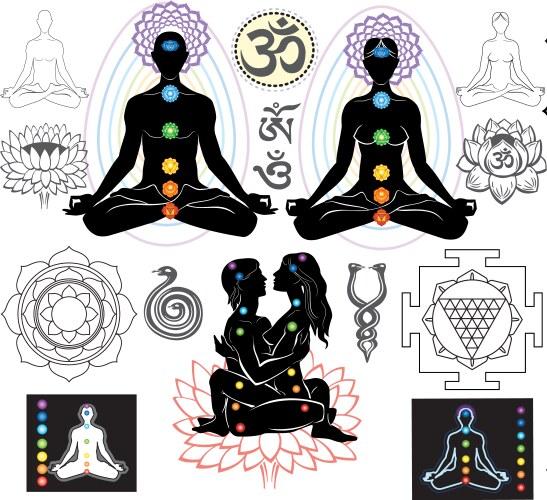In a world increasingly captivated by the pursuit of inner peace and mindfulness, meditation stands as a beacon of tranquility and self-discovery. Its promises of reduced stress, enhanced focus, and emotional clarity have drawn millions to its serene embrace. Yet, beneath the soothing chants and calming breaths lies a lesser-explored dimension: the potential for meditation to lead to unexpected transformations that aren’t always positive. While tales of enlightenment and profound calm abound, there are also stories of unsettling experiences and psychological turbulence. This article delves into the nuanced landscape of meditation, exploring whether the path to inner peace might sometimes wander through unexpected shadows. As we unravel the complexities of this ancient practice, we aim to shed light on the question: Can meditation transformations have negative effects?
Exploring the Shadows: When Meditation Takes an Unexpected Turn
While many turn to meditation for its profound benefits, it’s important to acknowledge that not all experiences are serene. Sometimes, individuals encounter unexpected challenges during their practice. This can include experiences such as:
- Emotional Turmoil: Meditation can unearth repressed emotions, leading to feelings of anxiety or sadness.
- Physical Discomfort: Prolonged sessions might cause discomfort or pain, which can be unsettling for beginners.
- Overwhelm from Insight: Rapid spiritual or personal insights can be overwhelming, leaving one feeling disoriented.
While these effects are not universal, they remind us of the importance of mindful practice. By approaching meditation with awareness and preparedness, practitioners can navigate these shadows with grace, transforming challenges into opportunities for growth.

Understanding the Psychological Impact of Deep Meditation Practices
The journey of deep meditation is often lauded for its profound benefits, yet it is essential to recognize that such transformations can sometimes yield unexpected psychological challenges. When diving into the depths of one’s consciousness, individuals may encounter latent emotions or repressed memories that resurface, demanding attention and resolution. This can lead to feelings of anxiety or confusion, especially for those who are not prepared for such intense introspection.
- Emotional Vulnerability: Deep meditation can open emotional floodgates, making one feel raw and exposed.
- Identity Shifts: As old beliefs are questioned, individuals may experience a temporary loss of identity or purpose.
- Social Disconnect: Intense self-exploration can sometimes lead to feelings of alienation from social circles.
While these effects are not universal, they highlight the importance of approaching deep meditation with a balanced mindset and the guidance of experienced practitioners. Awareness and preparation can transform potential negative experiences into opportunities for personal growth and healing.

Balancing Mindfulness: Recognizing Signs of Over-Meditation
While meditation is often celebrated for its myriad benefits, an excessive or unbalanced practice can sometimes lead to unintended consequences. It’s crucial to be aware of signs that you may be over-meditating, as the quest for tranquility can inadvertently lead to a sense of disconnection or detachment from the present.
- Physical Discomfort: Persistent aches or fatigue may indicate that your body is not adjusting well to extended sessions.
- Emotional Numbness: A lack of emotional response or feeling disconnected from your surroundings could be a sign that meditation is overshadowing other essential emotional processes.
- Decreased Motivation: Losing interest in daily activities or social interactions might suggest an imbalance between introspection and external engagement.
Mindfulness should enhance your awareness and connection to the world, not diminish it. Recognizing these signals allows you to adjust your practice, ensuring that meditation remains a positive and enriching part of your life.

Guiding Your Journey: Expert Tips for Safe Meditation Practices
Embarking on the path of meditation is akin to setting sail on an uncharted sea, filled with the potential for profound transformation. Yet, as with any journey, it’s crucial to navigate with care. While meditation is celebrated for its positive impacts on mental health and well-being, practitioners may occasionally encounter unexpected challenges. It’s important to be aware of these to ensure a balanced and beneficial practice.
Here are some expert tips to guide your meditation journey safely:
- Start Slowly: If you’re new to meditation, begin with short sessions to gradually acclimate your mind and body.
- Seek Guidance: Consider consulting a seasoned meditation teacher to personalize your practice and address any concerns.
- Stay Grounded: Incorporate grounding techniques, such as deep breathing or gentle movement, to maintain a connection with the present moment.
- Be Mindful of Emotions: Meditation can sometimes bring suppressed emotions to the surface. Acknowledge these feelings without judgment and seek support if needed.
By adhering to these practices, you can navigate the complexities of meditation with confidence, transforming potential pitfalls into stepping stones towards greater self-awareness and inner peace.
To Wrap It Up
As we draw the curtains on our exploration of meditation’s potential transformations, it becomes clear that this ancient practice, while often revered for its calming embrace, is not without its complexities. Like a coin with two faces, meditation offers profound benefits but may also harbor unexpected challenges. It is a journey of self-discovery that requires mindfulness not just in practice but in understanding its broader impact on our mental landscape. As with any powerful tool, it is crucial to wield meditation with awareness, acknowledging both its light and shadows. As we step away from this inquiry, may we carry with us a balanced perspective, ever curious and open to the myriad experiences that shape our path to inner peace.
